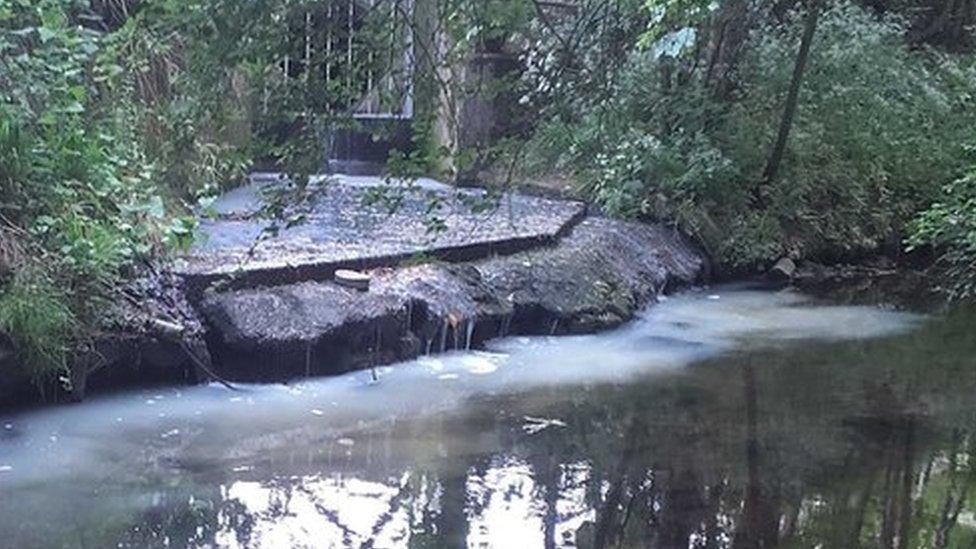Campaigners call for River Stour clean up after E. Coli is found
- Published
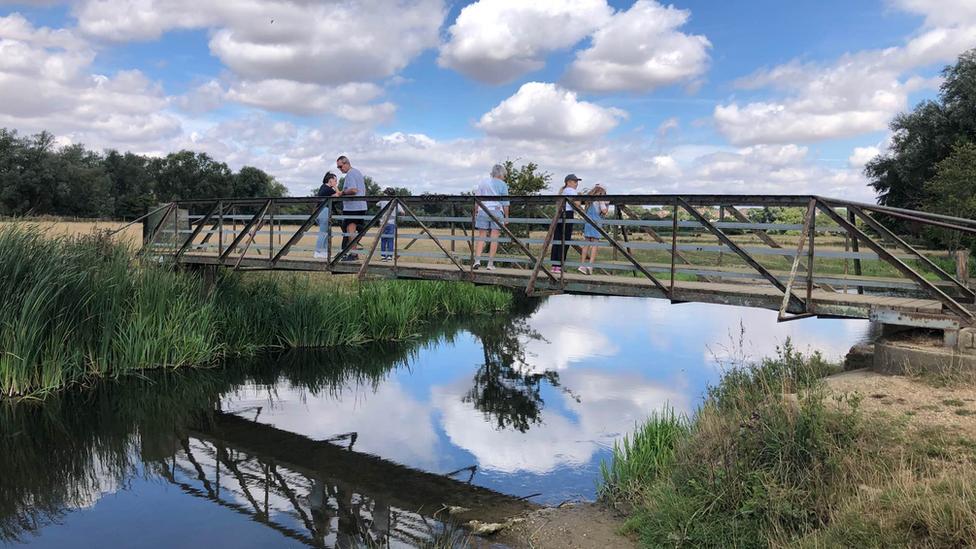
The River Stour in Suffolk is popular with families, campaigners say
Campaigners say more needs to be done to keep a river clean after the discovery of E. coli bacteria.
Tests carried out on the River Stour in Suffolk - near the Sudbury water treatment works - showed "very high" levels of the bacteria.
Scientist Vincent McGoldrick said the levels were "significantly different" before and after the works.
Anglian Water said the E. coli did not necessarily come from sewage but it was spending £200m to reduce storm spills.
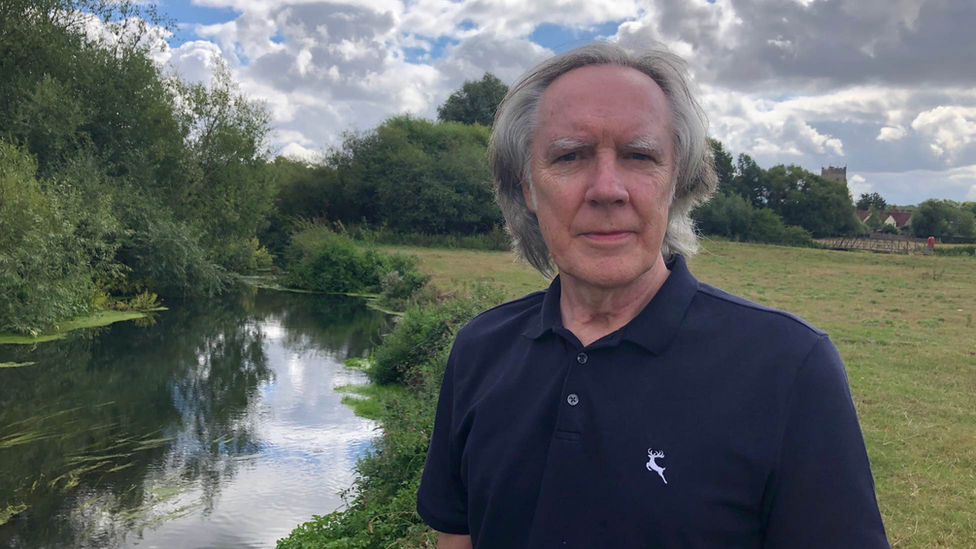
Vincent McGoldrick said he was surprised by the levels of E. coli he found
Mr McGoldrick took the samples to investigate the differing levels of E. coli in Suffolk's rivers for a degree in environmental science at the Open University.
He said the amount of bacteria in the river after the water treatment works was "far in excess" of the levels the Environment Agency would allow for swimming.
The River Stour was not designated bathing water, so the level of E. coli is not monitored by the Environment Agency.
But Laura Smith, an environmental campaigner and Green Party member said: "Families use the river, kayakers, paddleboarders use it and children paddle in it.
"More and more people have been using the river since lockdown and we just think the public ought to be aware of the risk they are taking."
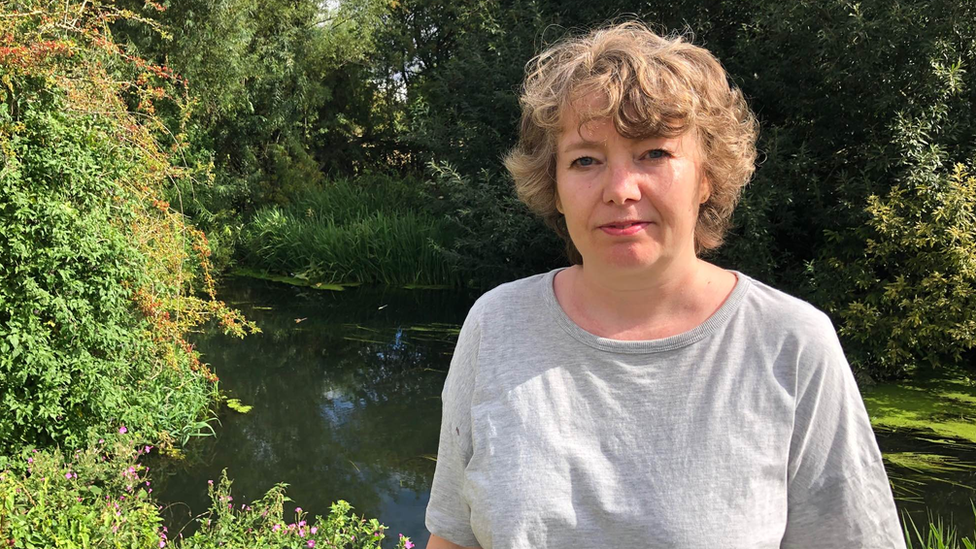
Campaigner Laura Smith said more people are using the river and people should be able to swim in it
Jessie Carter, a Green Party councillor on the county council and Sudbury Town Council said the levels of E. coli were "something we can tackle".
"We could work with Anglian Water and work with the government and ensure it isn't an issue and isn't coming from [the sewage treatment works]," she said.
The councillor added the UK's sewage systems were "outdated, they date back to the Victorian era" and needed to be upgraded.
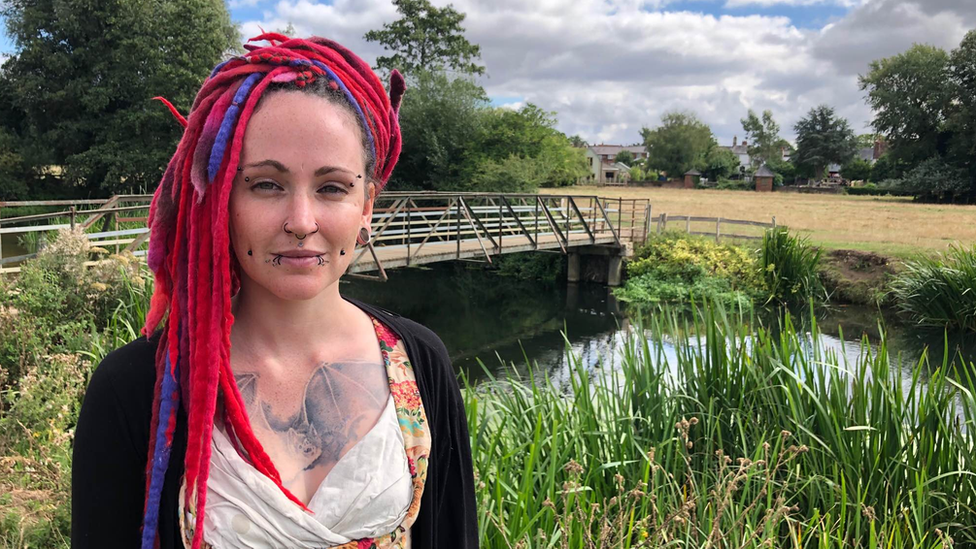
Green Party councillor Jessie Carter said the water company should help clean up the river
Anglian Water said in a statement that E. coli was "ubiquitous in all environments, [the bacteria] are not specific to sewage".
It said the company was "investing more than £200 million to reduce storm spills between now and 2025, targeted in places where it will have the most benefit to the environment".
"We're committed to ensuring storm overflows and sewage treatment works will not be the reason for unhealthy rivers by the end of the decade," the statement said.
The Environment Agency said: "Rivers and open waters that are not designated as bathing waters are managed for the purpose of protecting fish and wildlife, not public health."

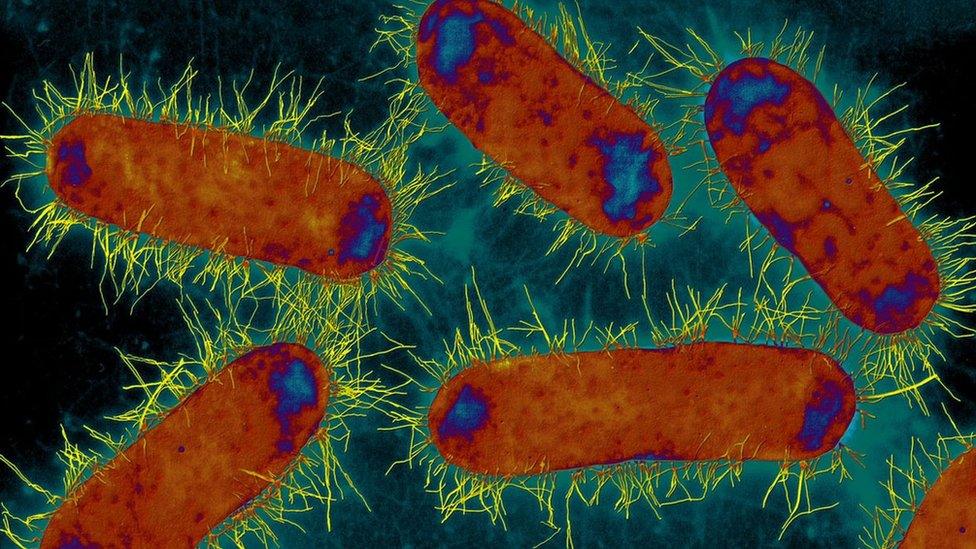
A coloured scanning electron micrograph of E. coli bacteria
What is E. coli?
Escherichia coli (E. coli) bacteria are found in the intestines of humans and animals. There are many different types: some are harmless and others can cause a variety of diseases.
The bacterium is found in faeces and can survive in the environment.
It can cause a range of diseases including urinary tract, bladder and intestinal infections.
The illnesses can be serious and often include severe diarrhoea, sometimes with blood in it, abdominal cramps and fever.
Bacteraemia (blood stream infection) may be caused by primary infections spreading to the blood.
Source: Public Health England

Find BBC News: East of England on Facebook, external, Instagram, external and Twitter, external. If you have a story suggestion email eastofenglandnews@bbc.co.uk, external
Related topics
- Published17 August 2022
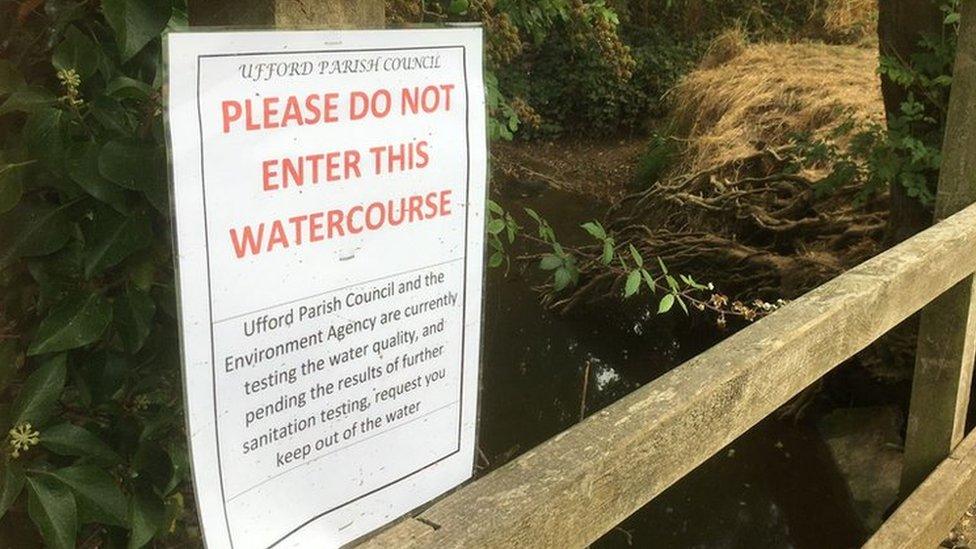
- Published13 July 2022
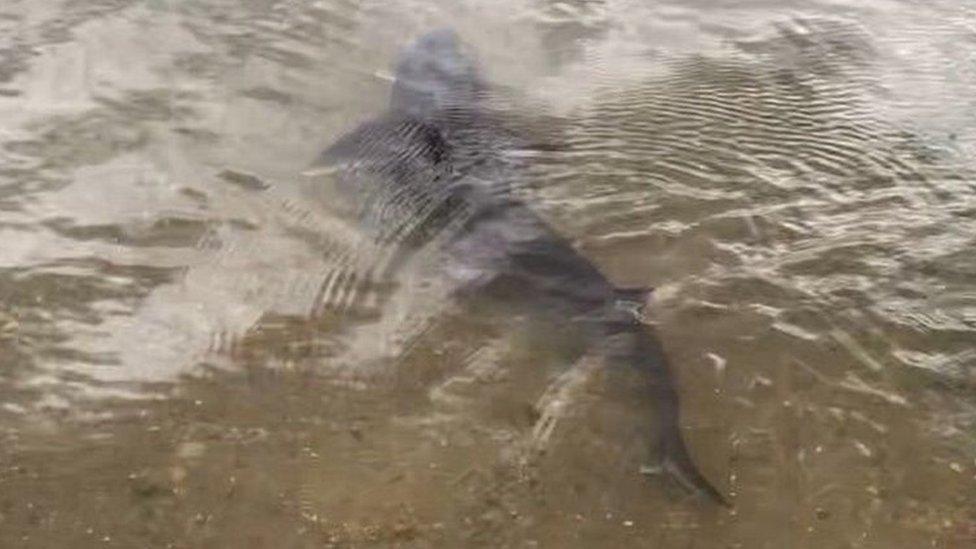
- Published18 May 2022
